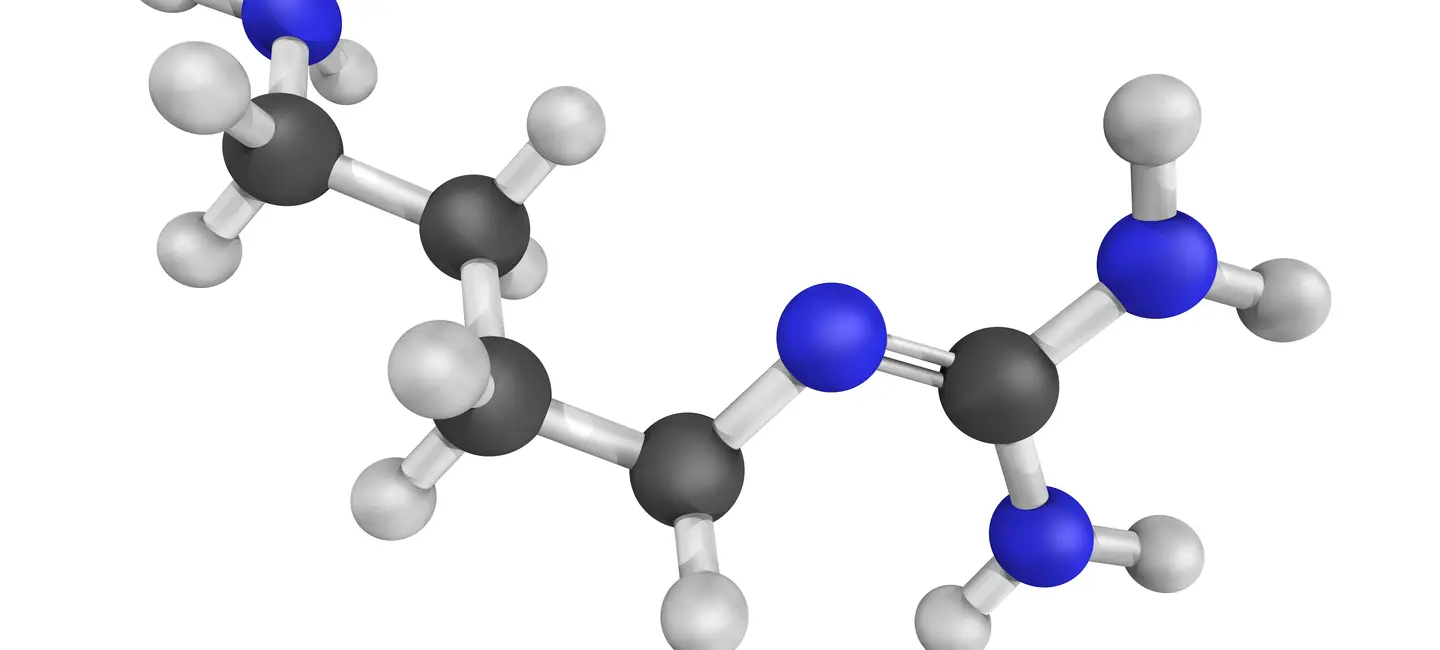
Agmatine is a chemical found in bacteria, plants, and animals, including humans. It's made from the amino acid called arginine.
Agmatine seems to help manage different chemicals and pathways in the brain. This might improve certain conditions of the brain and nervous system.
People use agmatine for alcohol use disorder, Alzheimer disease, anxiety, depression, Parkinson disease, stroke, and many other conditions, but there is no good scientific evidence to support these uses.
Is It Effective?
There is interest in using agmatine for a number of purposes, but there isn't enough reliable information to say whether it might be helpful.
Is it Safe?
When taken by mouth: Agmatine is possibly safe when used in doses up to 2.67 grams daily for up to 2 months. Side effects might include diarrhea, indigestion, and nausea.
Special Precautions & Warnings:
Pregnancy and breast-feeding: There isn't enough reliable information to know if agmatine is safe to use when pregnant or breast feeding. Stay on the safe side and avoid use.
Surgery: Agmatine might lower blood sugar and blood pressure. This might interfere with blood sugar and blood pressure control during and after surgery. Stop taking agmatine at least 2 weeks before a scheduled surgery.
Medications for diabetes (Antidiabetes drugs)
Interaction Rating=Moderate Be cautious with this combination.
Agmatine might lower blood sugar levels. Taking agmatine along with diabetes medications might cause blood sugar to drop too low. Monitor your blood sugar closely.
Medications for high blood pressure (Antihypertensive drugs)
Interaction Rating=Moderate Be cautious with this combination.
Agmatine might lower blood pressure. Taking agmatine along with medications that lower blood pressure might cause blood pressure to go too low. Monitor your blood pressure closely.
Herbs and supplements that might lower blood pressure: Agmatine might lower blood pressure. Taking it with other supplements that have the same effect might cause blood pressure to drop too much. Examples of supplements with this effect include andrographis, casein peptides, L-arginine, niacin, and stinging nettle.
Herbs and supplements that might lower blood sugar: Agmatine might lower blood sugar. Taking it with other supplements with similar effects might lower blood sugar too much. Examples of supplements with this effect include aloe, bitter melon, cassia cinnamon, chromium, and prickly pear cactus.
There are no known interactions with foods.
There isn't enough reliable information to know what an appropriate dose of agmatine might be. Keep in mind that natural products are not always necessarily safe and dosages can be important. Be sure to follow relevant directions on product labels and consult a healthcare professional before using.
1-(4-aminobutyl)guanidine, Agmatin, Decarboxylated Arginine.
Information on this website is for informational use only and is not intended to replace professional medical advice, diagnosis, or treatment. While evidence-based, it is not guaranteed to be error-free and is not intended to meet any particular user’s needs or requirements or to cover all possible uses, safety concerns, interactions, outcomes, or adverse effects. Always check with your doctor or other medical professional before making healthcare decisions (including taking any medication) and do not delay or disregard seeking medical advice or treatment based on any information displayed on this website.
© TRC Healthcare 2024. All rights reserved. Use and/or distribution is permitted only pursuant to a valid license or other permission from TRC Healthcare.
